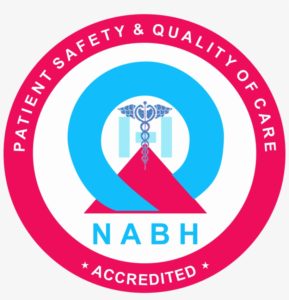Adrenal disorders involve dysfunction of the adrenal glands, which are small, triangular-shaped glands located on top of each kidney. These glands play a crucial role in producing hormones that regulate various bodily functions, including metabolism, blood pressure, and the body’s response to stress. There are several types of adrenal disorders:
Cushing’s Syndrome:
- Cause: Excessive production of cortisol, often due to adrenal tumours or prolonged use of corticosteroid medications.
- Symptoms: Weight gain, rounded face (“moon face”), high blood pressure, diabetes, muscle weakness, and mood changes.
Addison’s Disease:
- Cause: Insufficient production of cortisol and aldosterone, usually due to autoimmune destruction of the adrenal glands.
- Symptoms: Fatigue, weight loss, low blood pressure, darkening of the skin (hyperpigmentation), and salt cravings.
Hyperaldosteronism:
- Cause: Overproduction of aldosterone, leading to an imbalance of sodium and potassium.
- Symptoms: High blood pressure, muscle weakness, and low potassium levels.
Adrenal Tumours:
- Cause: Benign or malignant tumours can develop in the adrenal glands, affecting hormone production.
- Symptoms: Vary depending on the type of tumour and the hormones produced but may include hormonal imbalances, pain, and mass effects.
Congenital Adrenal Hyperplasia (CAH):
- Cause: Genetic disorder affecting the adrenal glands’ ability to produce cortisol.
- Symptoms: Vary depending on the severity but may include hormonal imbalances, abnormal genitalia in females, and electrolyte abnormalities.
Pheochromocytoma:
- Cause: Tumour in the adrenal medulla leading to excessive release of adrenaline and noradrenaline.
- Symptoms: Severe hypertension, headaches, sweating, and rapid heart rate.
Diagnosis and Treatment:
- Hormone Testing: Blood and urine tests to measure hormone levels.
- Imaging Studies: CT scans or MRI to visualise the adrenal glands.
- Biopsy: In some cases, a tissue sample may be taken for analysis.
Treatment Options:
- Medication: Depending on the specific disorder, medications may be used to regulate hormone levels.
- Surgery: Removal of tumours or the entire adrenal gland in cases of tumours or cancer.
- Lifestyle Management: Dietary changes, stress reduction, and other lifestyle modifications may be recommended.
Complications:
- If left untreated, adrenal disorders can lead to serious complications, including cardiovascular issues, metabolic abnormalities, and electrolyte imbalances.
Individuals experiencing symptoms of adrenal disorders should seek medical attention for proper diagnosis and treatment. Treatment plans are often individualised based on the specific disorder, its severity, and the patient’s overall health. Regular follow-ups with healthcare professionals are essential for monitoring and managing adrenal disorders effectively.






